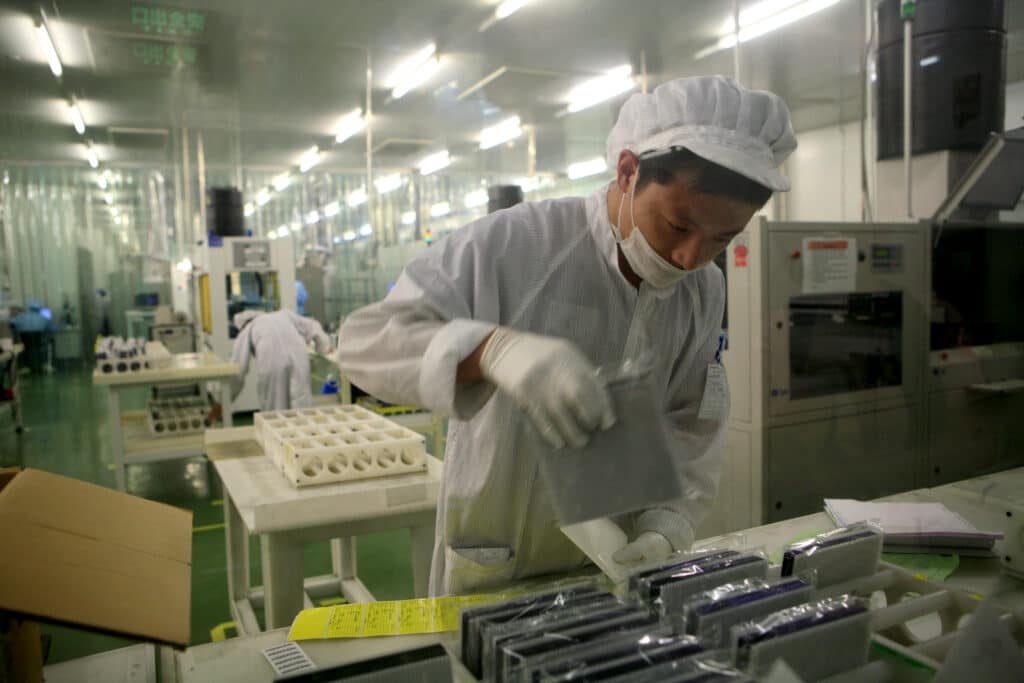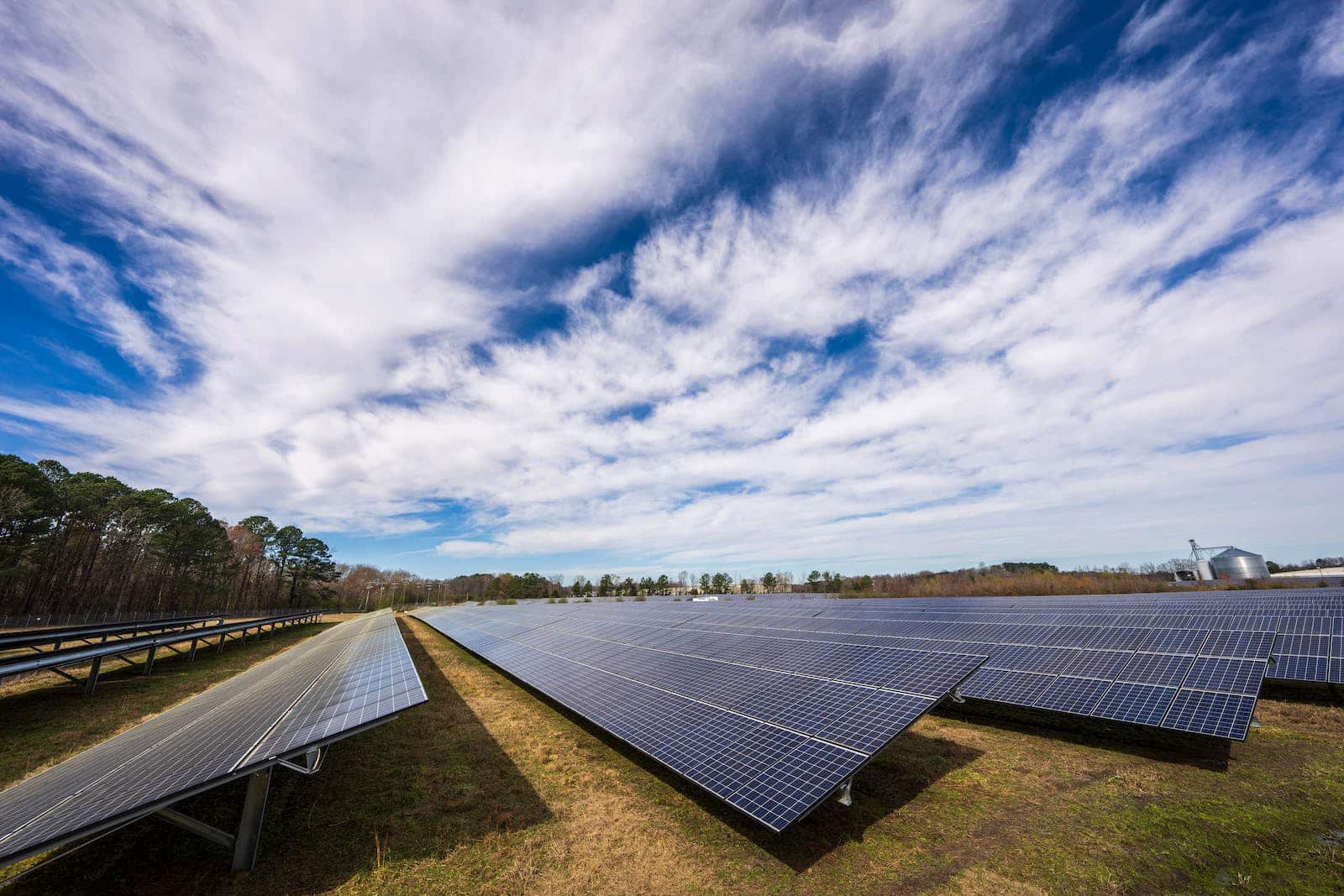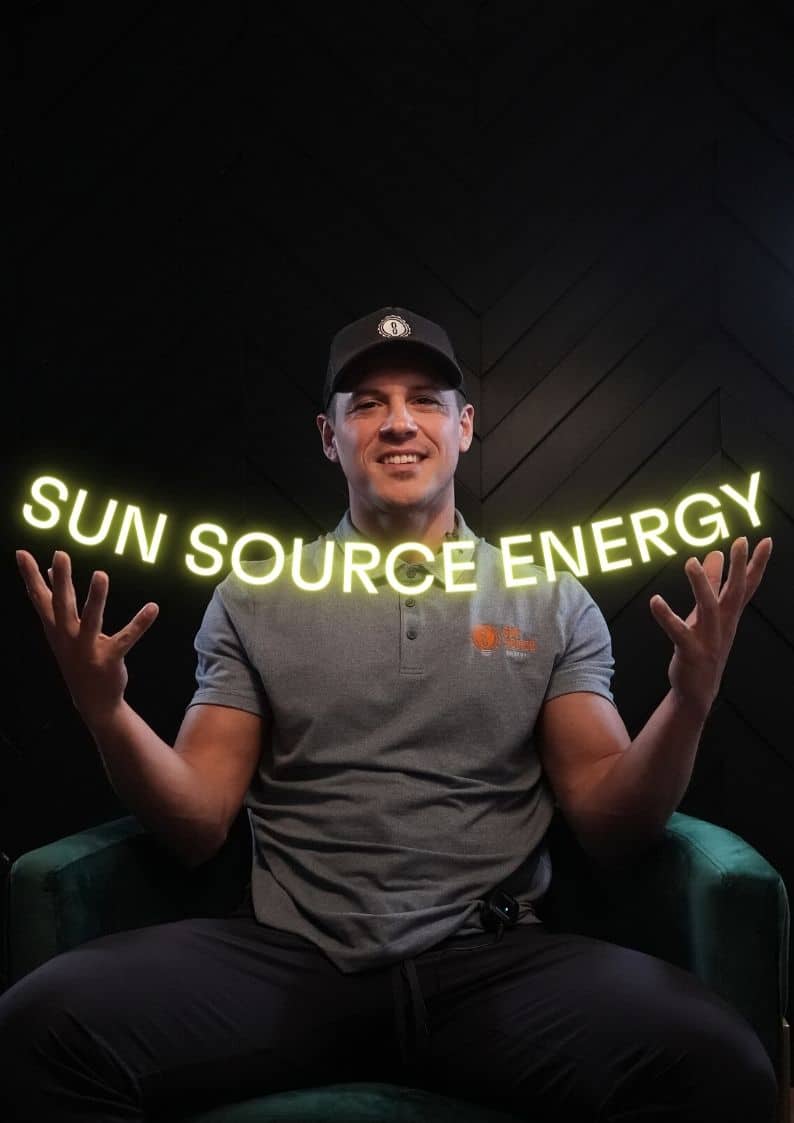In recent years, solar energy has emerged as a popular and eco-friendly alternative to traditional power sources. With growing concerns about climate change and the rising cost of electricity, more and more homeowners and environmentalists are turning to solar panels as a viable solution.
But how efficient are solar panels?
This comprehensive guide will explore the ins and outs of solar panel efficiency, compare top-rated brands, and provide practical advice on choosing the best solar panels for your home.
Understanding Solar Panel Efficiency
Understanding the efficiency of solar panels is essential for anyone considering making the switch to solar energy. This section will delve into what solar panel efficiency means and why it matters.
Let’s delve deeper into this with a Solar Consultation.
Definition and Importance
Solar panel efficiency is a measurement of how much of the sun’s energy a solar panel can convert into usable electricity. It’s a crucial factor to consider when selecting solar panels for your home.
Higher efficiency panels will generate more electricity from the same amount of sunlight, making them more effective in reducing your energy bills and carbon footprint.
By opting for efficient panels, you ensure that your investment provides maximum returns over time. Discover more about this with Enel X’s guide on the energy efficiency of solar panels.
How is Solar Panel Efficiency Measured?
Solar panel efficiency is measured by capturing the electrical current generated when sunshine interacts with silicon or thin film cells inside a solar panel.
The highest efficiency of solar panels can reach almost 23%. This means that 23% of the sunlight that hits the panel is converted into usable electricity.
Understanding this metric helps homeowners choose the most suitable panels for their energy needs. Consistently monitoring these efficiency metrics ensures that your solar system operates at peak performance.
CNET discusses the most efficient solar panels currently on the market.

Factors Affecting Efficiency
Several factors influence the efficiency of solar panels. These factors can be broadly categorized into environmental and internal factors, each of which plays a significant role in the overall performance of a solar panel system.
Environmental Factors
Environmental factors such as weather, climate, and shading can significantly impact the efficiency of solar panels. Let’s explore how each of these elements affects solar panel performance.
Weather and Climate Conditions

Weather and climate conditions play a significant role in solar panel efficiency. Shade from nearby buildings, trees, or heavy cloud coverage can reduce efficiency. Additionally, significant amounts of dirt and dust can accumulate on panels, further diminishing their performance.
Regular cleaning and strategic placement can mitigate these issues. Ensuring that panels are placed in the optimal position can greatly enhance their overall output. EcoWatch explores the functionality of solar panels on cloudy days.
Temperature
Contrary to popular belief, high temperatures can reduce solar panel efficiency. Solar panels produce more electricity in colder temperatures. Therefore, ensuring proper ventilation and avoiding direct exposure to intense heat can help maintain optimal performance. By managing panel temperature, you can prevent efficiency losses and extend the lifespan of your system.
Shading
Shading can significantly reduce solar panel efficiency. Even partial shading can cause a disproportionate drop in energy production. To prevent this, it’s essential to position panels in areas that receive the most sunlight and use technologies like microinverters to minimize shading impacts. Employing shading analysis tools during installation can help identify and avoid potential problem areas.
Internal Factors
Internal factors, such as the type of solar panel and the quality of materials used, also influence efficiency. This section will discuss these internal elements in detail.
Type of Solar Panel
The type of solar panel used can greatly affect efficiency. Monocrystalline solar cells, cut from a single source of silicon, are purer and more efficient. In contrast, polycrystalline solar cells, made with silicon blended from multiple sources, have a distinctive blue color but are generally less efficient. Selecting the right type of panel can balance efficiency needs with budget constraints.
Quality of Materials and Manufacturing
The quality of materials and manufacturing processes also affects solar panel efficiency. High-quality materials and precision manufacturing ensure better performance and longevity. Investing in reputable brands with proven track records can lead to more reliable and efficient panels. Top-tier materials also provide better resistance to environmental wear and tear.
Age and Degradation
Solar panels lose efficiency over time through a process called degradation.
On average, panels degrade at a rate of about 0.5% to 1% per year. This gradual decline means that panels will produce slightly less electricity each year, so it’s crucial to consider the longevity and warranty of the panels you choose.
Choosing panels with lower degradation rates ensures long-term savings and consistent performance. Rated Power discusses solar panels degradation in more detail.
Cost Efficiency and Long-Term Savings
When evaluating the cost efficiency of solar panels, it’s essential to consider not just the upfront costs but also the long-term financial benefits. The initial investment includes the purchase of the panels and the installation costs.
However, this should be weighed against the potential savings on energy bills over the lifespan of the system, which can be 25 years or more. In many cases, the system can pay for itself several times over in saved electricity costs. MarketWatch provides a guide on the worth of solar panels.
Reducing Dependence on the Grid
Energy independence is a significant advantage of installing solar panels.
By generating their own electricity, homeowners can reduce their dependence on the grid. This not only provides a buffer against fluctuating energy prices but also ensures a degree of self-sufficiency in case of power outages.
Additionally, excess energy produced can often be sold back to the grid, turning an eco-friendly solution into a potential income stream.
Learn more about how solar panel inspections ensure your system’s efficiency with our Solar Panel Inspection guide.
Environmental Impact and Carbon Footprint
The environmental impact of switching to solar energy cannot be overstated.
By reducing the need for electricity generated from fossil fuels, solar panels decrease the amount of carbon dioxide and other harmful emissions released into the atmosphere. This reduction in greenhouse gases is a significant step towards mitigating the effects of global warming and contributing to a healthier planet.
The influence of solar panels, particularly in sunny locales like Nevada, is profound, as detailed in our blog about Solar Panels in Las Vegas.
The Future of Solar Panel Efficiency
The future looks bright for solar panel efficiency. With ongoing research into materials like perovskite and the development of bifacial solar panels that can absorb light from both sides, the potential for even higher efficiency rates is on the horizon.
This could revolutionize the energy landscape, making solar panels an even more attractive option for homeowners around the world. Greener Ideal highlights the latest developments and breakthroughs in solar technology.
Learn More About Solar Panel Efficiency
For those interested in understanding the intricacies of solar panel efficiency and how it translates to energy and cost savings, a wealth of resources is available.
From detailed breakdowns of the technology to real-world case studies of savings, the information is there for the taking.
Dive deeper into the energy efficiency of solar panels and discover how they can transform your home and finances with Energy Sage.
Types of Solar Panels
Choosing the right type of solar panel is critical for maximizing efficiency and meeting your energy needs. This section provides an overview of the different types of solar panels available on the market.
Monocrystalline Solar Panels
Monocrystalline solar panels are known for their high efficiency and long lifespan. Here’s what you need to know about these top-performing panels.
High Efficiency Rates
Monocrystalline solar panels boast the highest efficiency rates, ranging from 15% to 22.8%. These panels are ideal for homeowners who want to maximize their energy production within limited roof space. Their high efficiency translates to more electricity generation and greater savings on energy bills. This makes them an excellent choice for those looking to get the most out of their investment.
Expensive Upfront Cost
However, monocrystalline panels come with a higher upfront cost. While they are more expensive initially, their superior performance and longevity often make them a worthwhile investment in the long run. Over time, the increased efficiency can offset the initial expense through greater energy savings.
Polycrystalline Solar Panels
Polycrystalline solar panels are a popular choice due to their balance of efficiency and affordability. Learn more about the benefits and drawbacks of these panels.
Lower Efficiency Rates
Polycrystalline solar panels have lower efficiency rates, typically ranging from 13% to 20%. They are less efficient than monocrystalline panels, meaning they require more space to produce the same amount of electricity. Despite this, they remain a viable option for many due to their affordability and reliability.
Lower Upfront Cost
Despite their lower efficiency, polycrystalline panels are more affordable upfront. This makes them an attractive option for homeowners on a budget who still want to benefit from solar energy. Their lower cost can make solar power accessible to a wider range of users.
Thin Film Solar Panels
Thin film solar panels offer unique advantages despite their lower efficiency. This section highlights their key characteristics and potential applications.
Lowest Efficiency Rates
Thin film solar panels have the lowest efficiency rates, ranging from 7% to 14%. They are less efficient than both monocrystalline and polycrystalline panels, making them less suitable for residential use where space is limited. However, their unique properties can be advantageous in certain scenarios.
Flexible and Lightweight
However, thin film panels offer unique advantages. They are flexible and lightweight, making them easier to install and ideal for unconventional surfaces. Their versatility makes them a viable option for certain applications despite their lower efficiency. This flexibility can be particularly useful for non-traditional installations.
Choosing the Right Solar Panels
Selecting the right solar panels involves considering several factors, including budget, energy needs, and quality. This section provides practical tips for making an informed decision.
Consider Your Budget
High-efficiency solar panels can cost more than standard solar panels, with prices ranging from $2,000 to $5,000 more. Assessing your budget and weighing the long-term savings against the initial investment is crucial. Carefully balancing upfront costs with expected savings ensures that you make the best financial decision for your situation.
Assess Your Energy Needs
Consider your energy needs and how much electricity you want to generate. This will help you choose panels that match your consumption patterns and provide sufficient energy for your home. Understanding your specific energy usage patterns can guide you in selecting the most appropriate system.
Evaluate the Quality of the Solar Panel
Evaluate the quality of the solar panel, including its efficiency rating, warranty, and durability. High-quality panels with robust warranties offer greater reliability and peace of mind. Panels with strong performance metrics and manufacturer support are more likely to deliver consistent results.
Check the Warranty and Durability
Check the warranty and durability of the solar panel. Longer warranties indicate higher confidence in the product’s longevity and performance. Ensuring that your panels are backed by a solid warranty provides security and reassurance.
Research the Manufacturer’s Reputation
Research the manufacturer’s reputation and customer reviews. Reputable brands with positive feedback are more likely to deliver reliable and efficient solar panels. A strong track record in the industry is a good indicator of quality and reliability.
The Future is Bright: Advancements in Solar Technology
The future of solar panels looks promising with ongoing advancements in technology. This section explores the latest trends and innovations shaping the solar industry.
As we stand on the cusp of a renewable energy revolution, it’s worth taking a deeper dive into the technological strides that are propelling solar panels to new heights.
Innovations in Solar Panel Technology
The field of solar technology is one of constant evolution. Researchers and companies are continually seeking ways to improve the materials and designs of solar panels to enhance their performance.
For example, the development of thinner, more light-absorbent materials has led to the creation of solar panels that are not only more efficient but also more aesthetically pleasing and versatile in their application.

Bifacial Solar Panels: Doubling Down on Efficiency
One of the most exciting developments in solar technology is the emergence of bifacial solar panels. These panels are capable of capturing sunlight from both their front and back sides, significantly increasing their energy capture potential. Bifacial panels can generate more electricity in the same footprint as traditional panels, making them especially valuable in areas with limited space.
Decreasing Costs
The cost of high-efficiency solar panels is decreasing as more brands enter the market. This trend makes solar energy more accessible and affordable for homeowners.
As prices continue to drop, the adoption of solar technology is likely to accelerate, benefiting both individuals and the environment.
Smart Solar Technology: The Intersection of Energy and Intelligence
The integration of solar technology with smart home systems is another leap forward. Smart solar panels come equipped with sensors and software that allow for real-time monitoring and management of energy production and usage. This technology enables homeowners to optimize their energy consumption, reduce waste, and even contribute surplus energy back to the grid more efficiently.
The Pursuit of Higher Efficiency
While current solar panels are far from 100% efficient, the pursuit of higher efficiency is relentless. Every incremental improvement in efficiency represents a significant step towards making solar energy more competitive with traditional energy sources.
Research into new materials, such as perovskites, and techniques, like maximizing the light absorption spectrum, are ongoing and hold the promise of future breakthroughs. Energy5 discusses solar energy advancements that transform the demand response landscape.
Smart Grid Compatibility and Energy Management

As solar panels become smarter, their compatibility with the smart grid becomes increasingly important.
The smart grid is an electricity network that uses digital technology to monitor and manage the transport of electricity from all generation sources to meet the varying electricity demands of end-users.
Smart solar panels are designed to be grid-responsive, adjusting their output in real-time to the demands of the grid, which enhances overall energy efficiency and stability.
Sustainable Production and Recycling
The sustainability of solar panel production is also improving. Manufacturers are focusing on reducing the environmental impact of production and increasing the recyclability of panel components.
This focus on the full lifecycle of solar panels is crucial for ensuring that the environmental benefits of solar energy are as comprehensive as possible.
Educating Homeowners on Solar Advancements
Staying informed about the latest developments in solar technology is vital for homeowners considering solar energy. With the rapid pace of innovation, solar panels are becoming more efficient, more affordable, and more integrated into our energy systems.
Homeowners who keep abreast of these changes can make more educated decisions about when and how to incorporate solar energy into their homes.
Explore the latest advancements in solar technology and learn how they can benefit your home and lifestyle with Forbes’ article on the pros and cons of solar energy.
Conclusion: Embracing Solar Energy
Solar panel efficiency is a crucial factor to consider when choosing solar panels for your home.
Monocrystalline solar panels offer the highest efficiency rates, while thin film panels have the lowest. While high-efficiency panels may cost more upfront, they produce more electricity and can save you money on your electric bills in the long run.
Considering solar panel efficiency is essential to maximize your solar production and achieve significant energy savings. By understanding the various factors that affect efficiency and evaluating different types of panels, you can make an informed decision that best suits your needs.
Take the next step towards a sustainable future by exploring your options and investing in efficient solar panels for your home.
Contact Sun Source Energy today to find the perfect solar solution tailored to your energy needs and budget. Embrace the power of solar and contribute to a greener planet.





